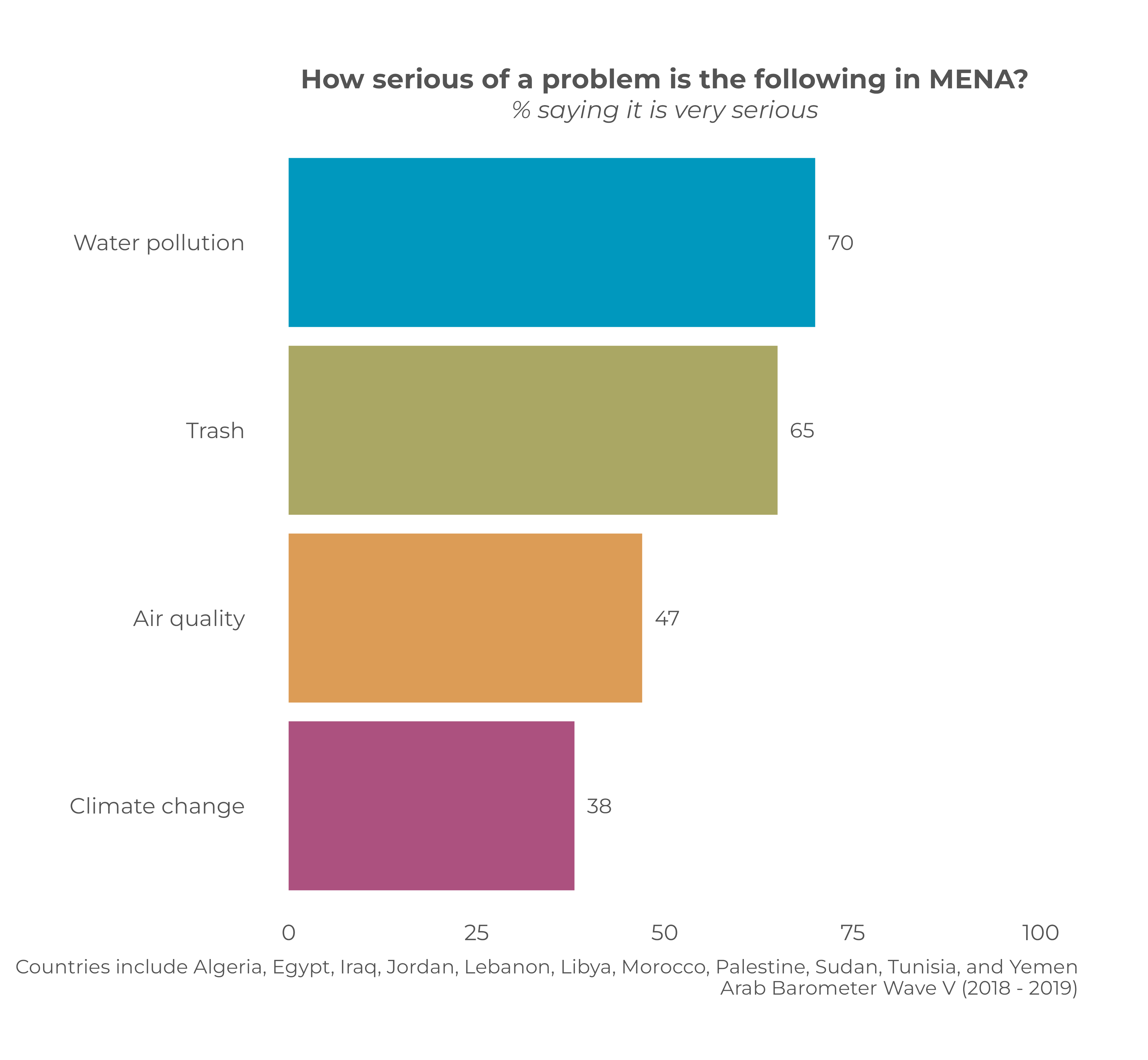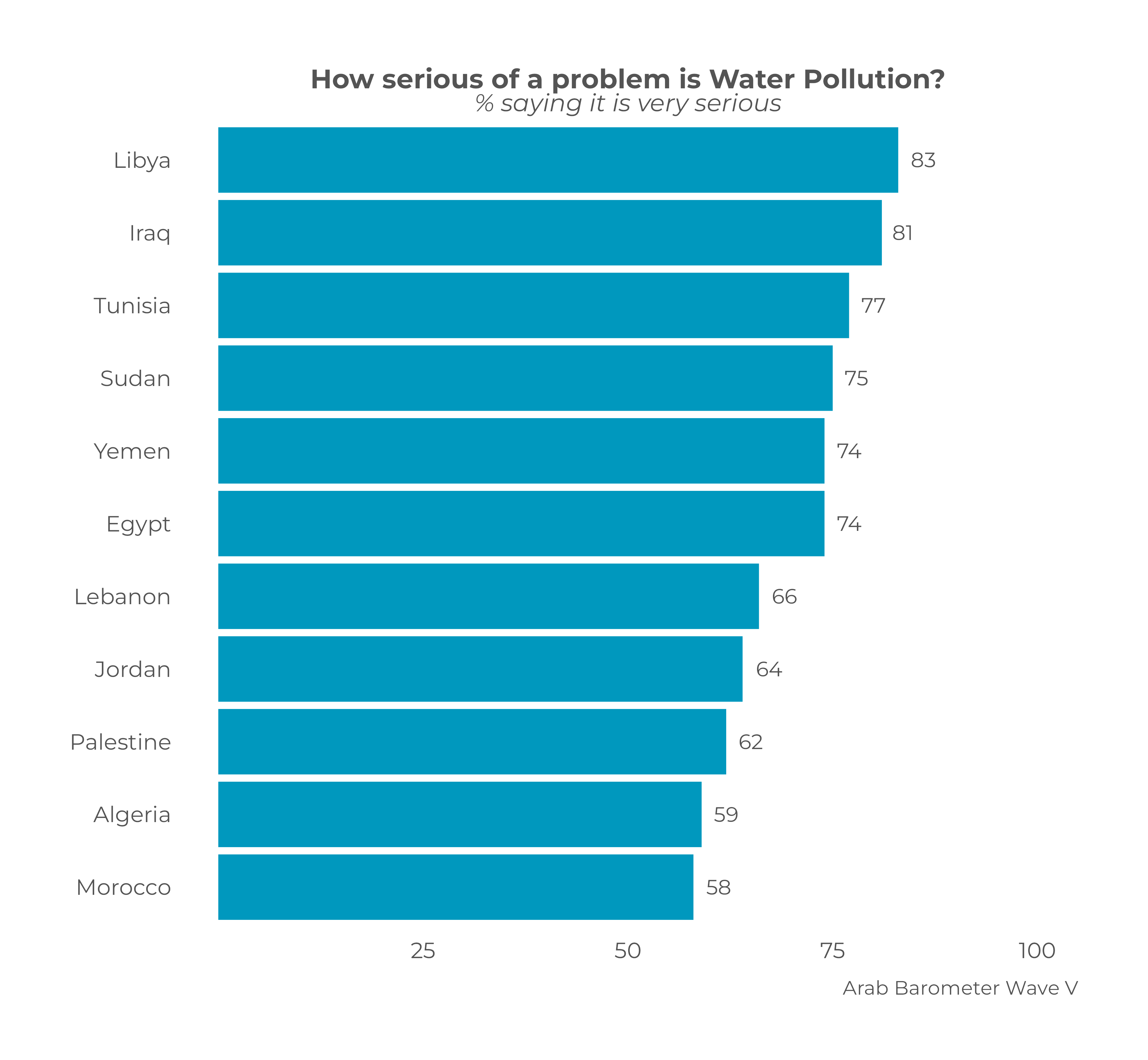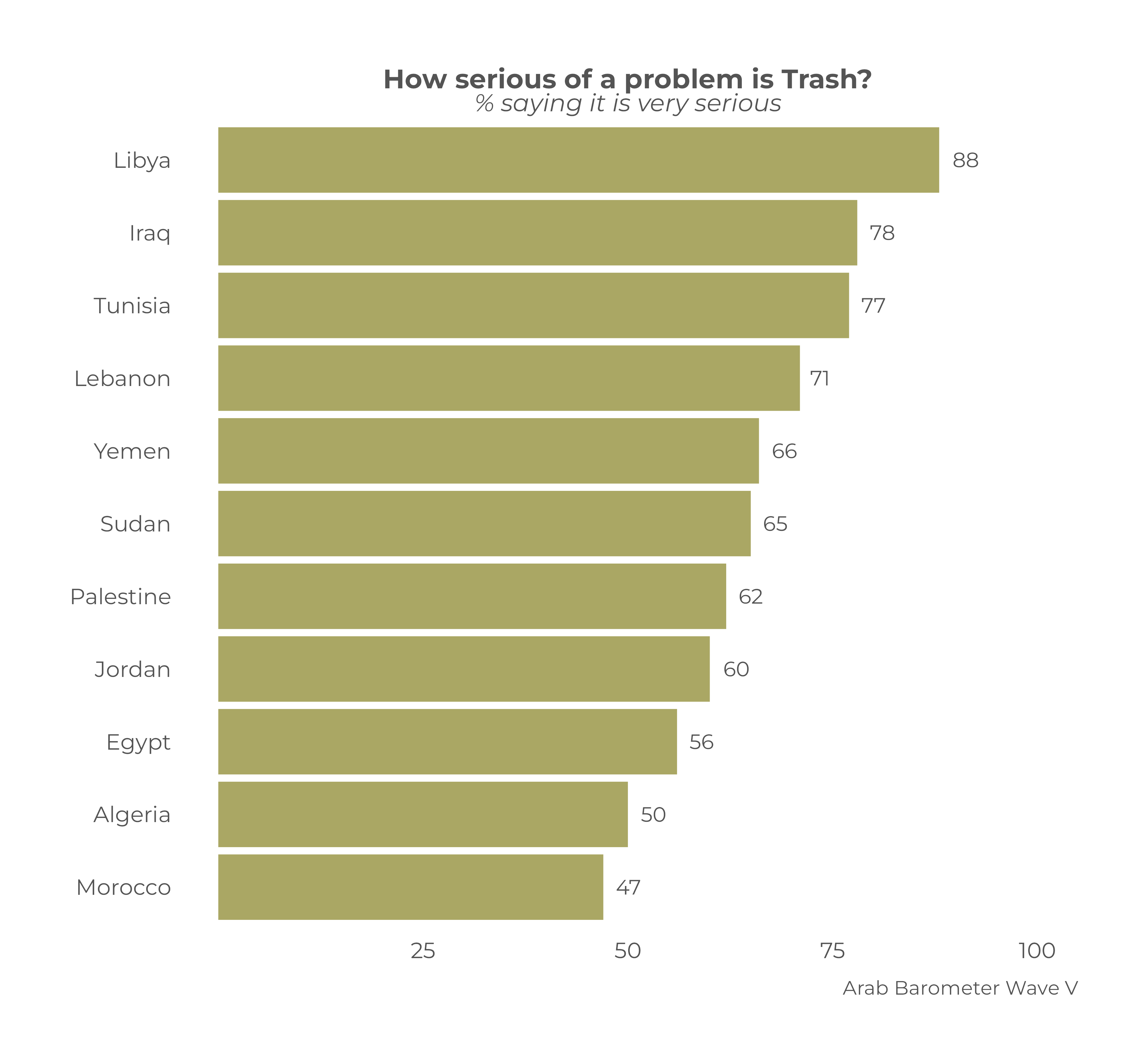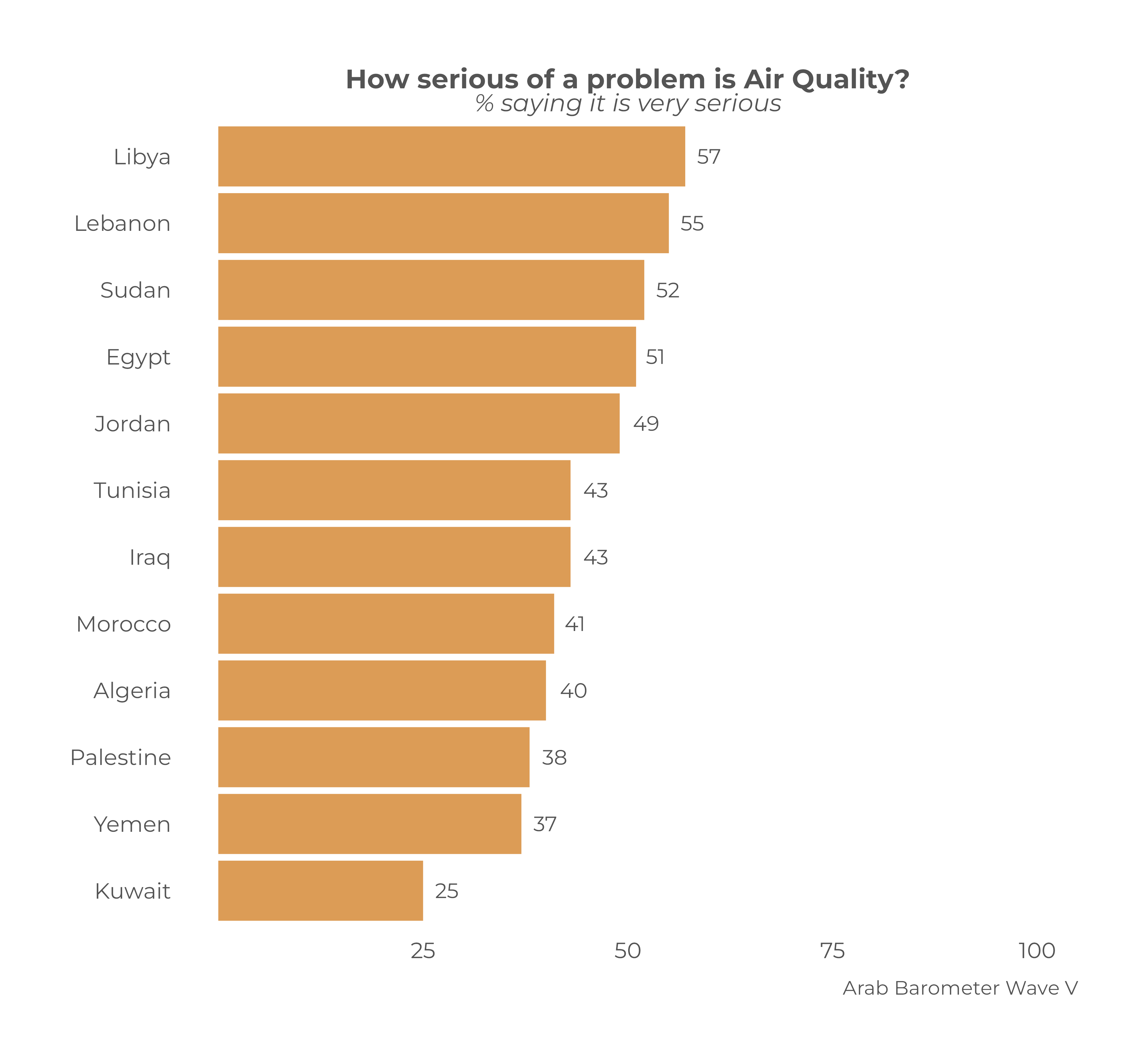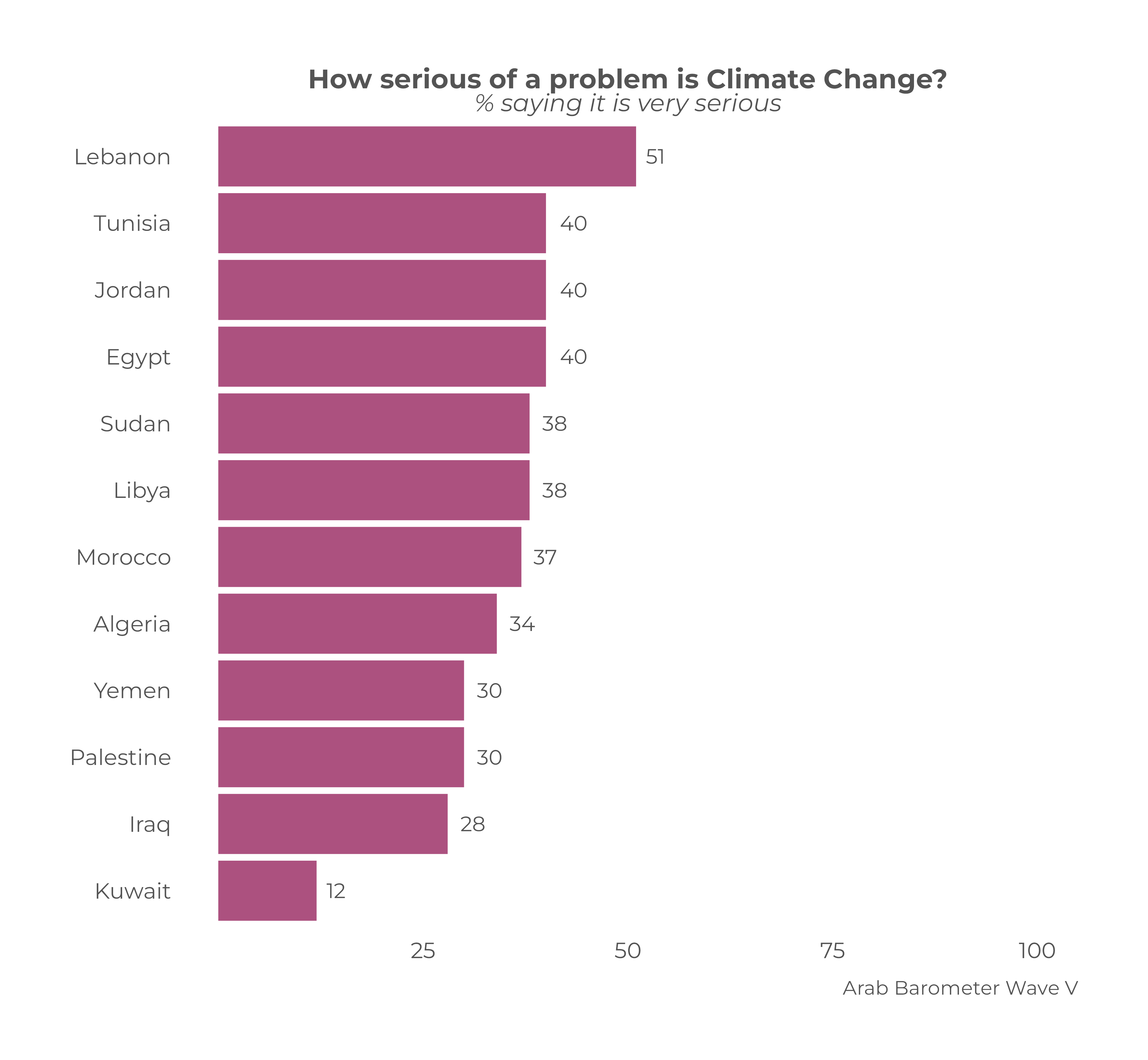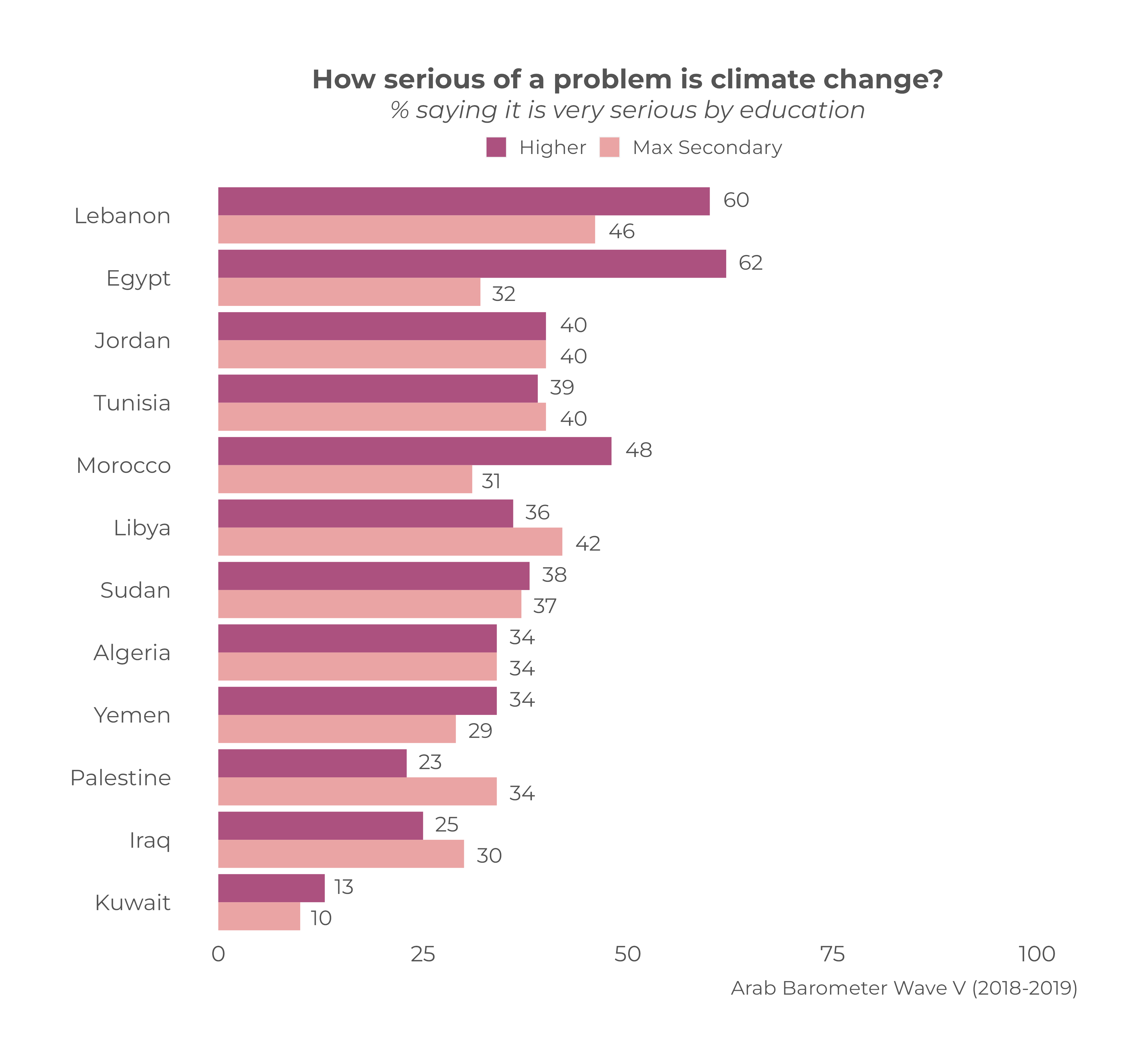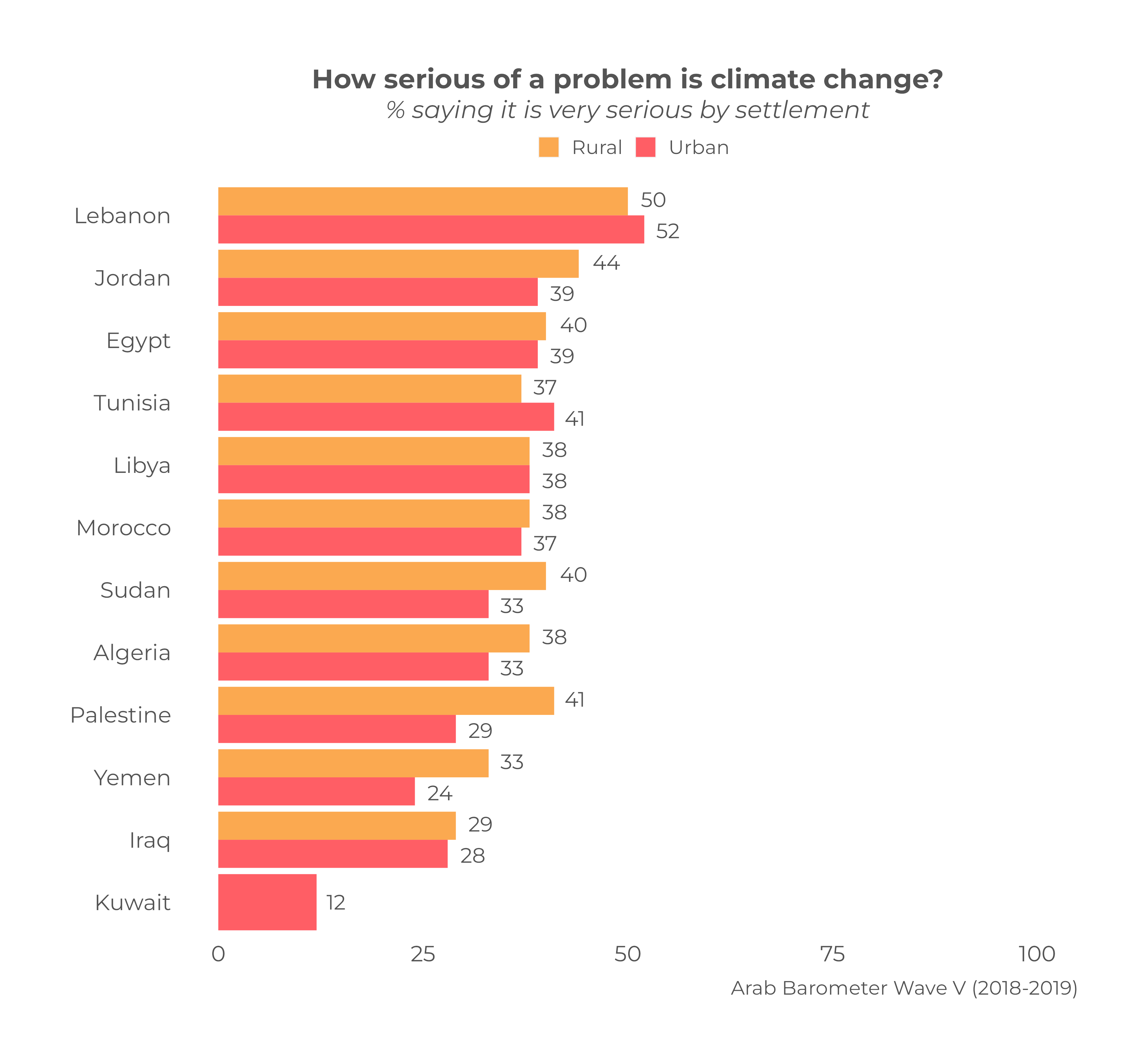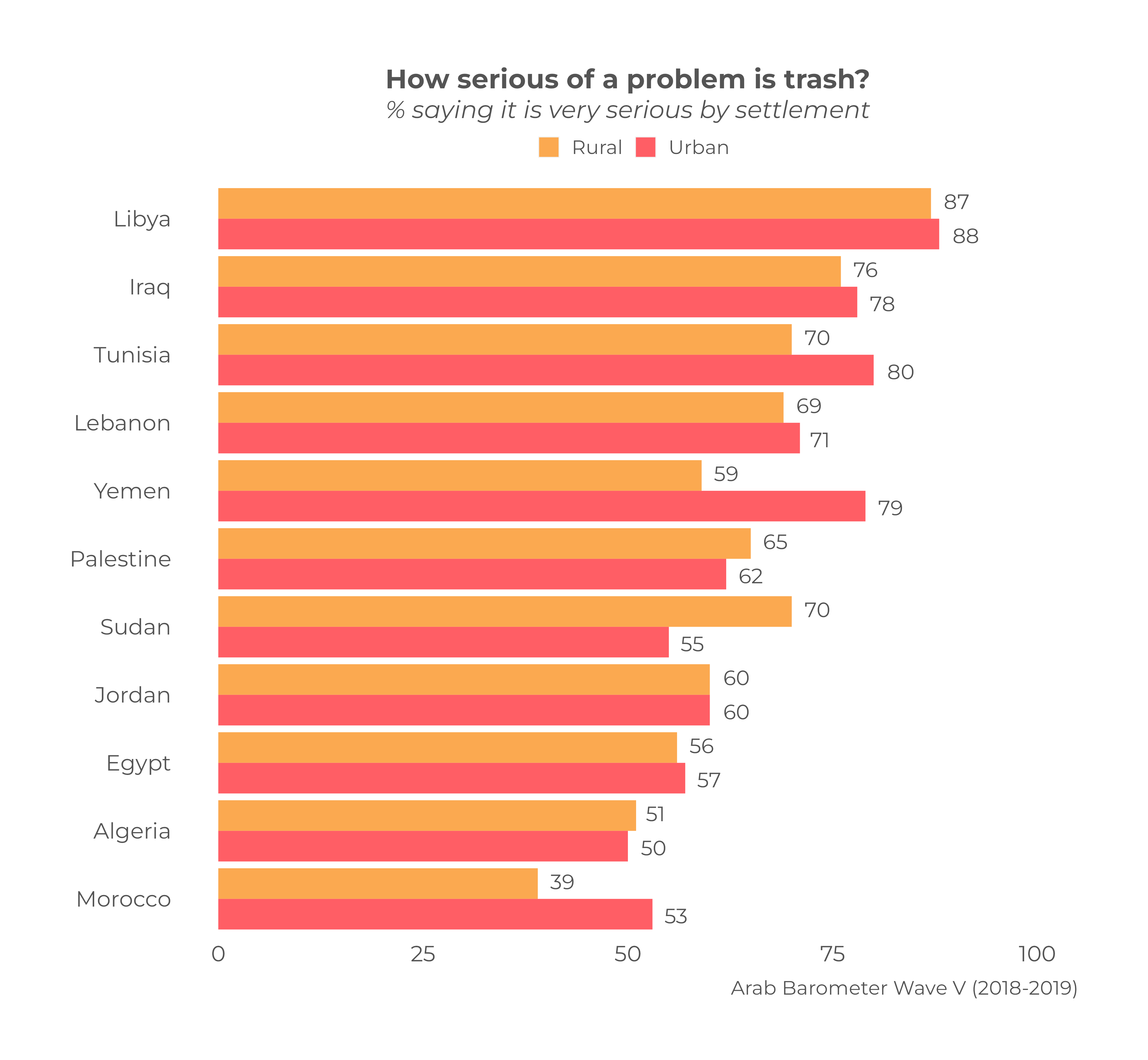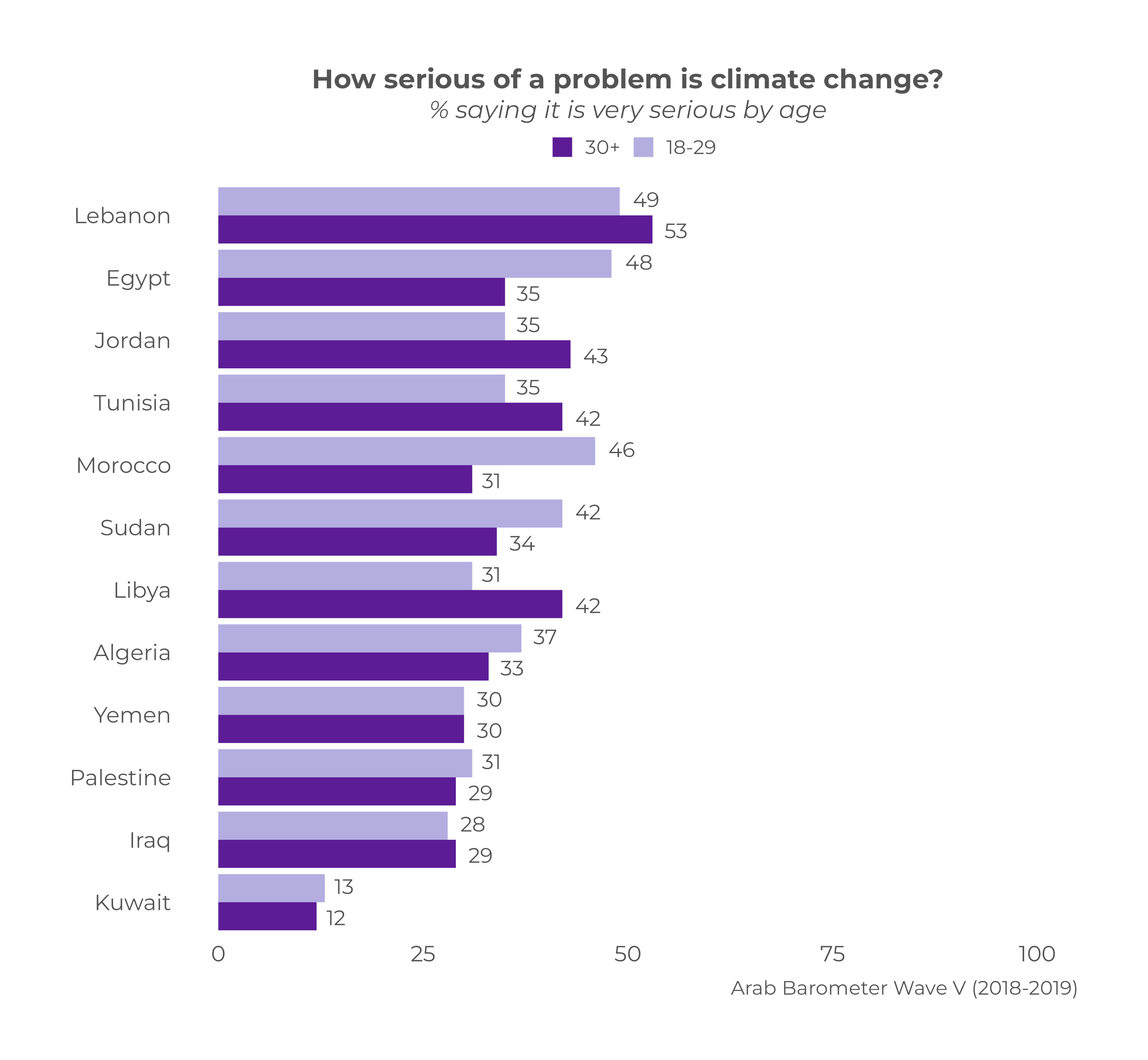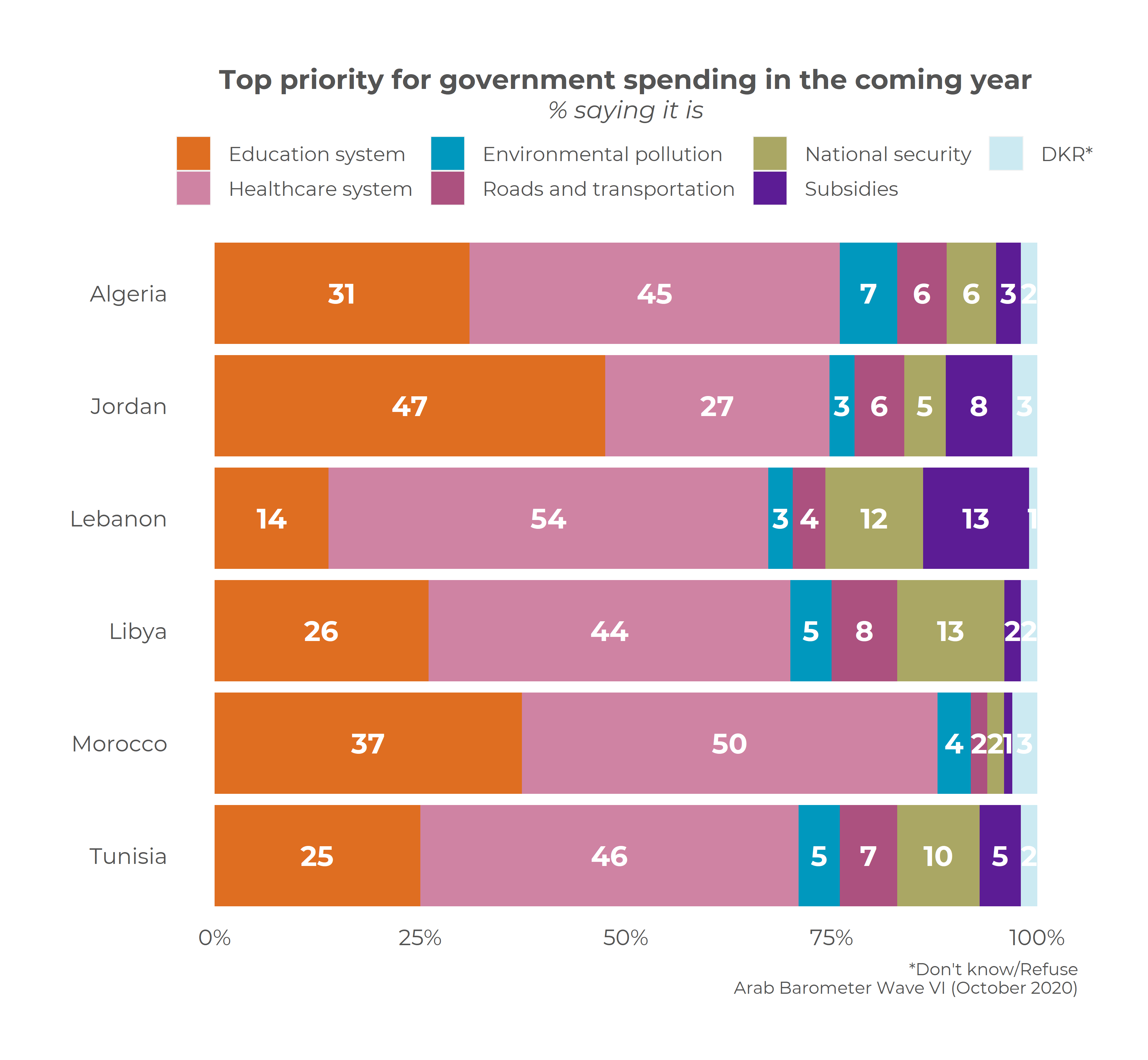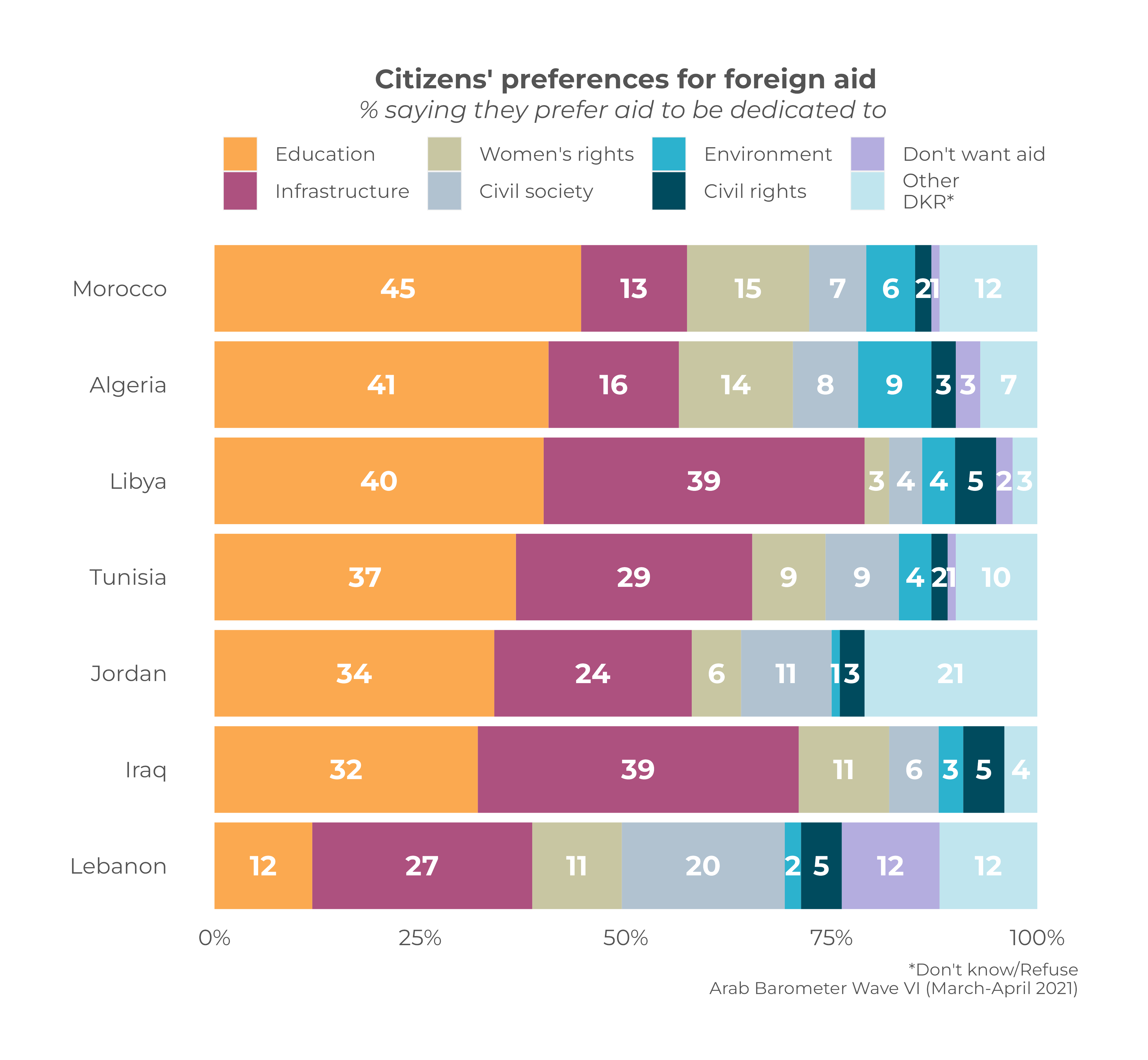From 28 to 31 March 2022, the inaugural Middle East and North Africa Climate Week 2022 in Dubai, UAE will bring together key stakeholders to take the pulse of climate action in the region, explore climate challenges and opportunities to build forward from the pandemic and showcase ambitious solutions. Arab Barometer’s 2018-2019 wave of surveys found that citizens across MENA overwhelmingly regard water pollution and trash as grave environmental concerns, while relatively fewer citizens worry about air pollution and climate change. Despite awareness of the danger of certain environmental issues in MENA, environmental protection doesn’t rise as a public priority, according to Arab Barometer’s 2020-2021 surveys.
Here are key findings from Arab Barometer wave five (2018-2019) and wave six (2020-2021):
1- Water Pollution and trash dominate MENA citizens’ list of environmental worries, while air pollution and climate change are viewed as less important. Still, the level of concern varies across the region. Lebanon is the most alarmed about climate change, while Kuwait is the least concerned among the 12 surveyed MENA countries, with only 12 percent of its citizens regarding it as a very serious problem. Notably, Libya and Iraq are seen as the most apprehensive about the environment, with the overwhelming majority being very concerned about water pollution and trash, while many in both countries are also concerned about air pollution. Nevertheless, both countries exhibit some of the lowest rates of concern about climate change with Iraq being the second least worried about it after Kuwait. Perhaps the discrepancy in level of concerns, in countries like Libya, Iraq and Kuwait is partially because they are major oil producing countries. As such citizens may fear curtailing the use of fossil fuels globally could gravely impact their economy.
2- Views by demographics: across the region, worries about the environment– climate change, air quality, water pollution, and trash – are greater for individuals with higher levels of education, as compared to individuals with lower levels of education. And attitudes toward the environment vary across the urban/rural divide in MENA. Climate change is viewed as more problematic by citizens living in rural areas compared to those living in urban areas especially in Palestine, Yemen, Sudan, Jordan and Algeria. Trash, on the other hand, is perceived as more problematic in urban areas in Tunisia, Yemen and Morocco, while it is considered a more serious issue in rural areas in Sudan. Surprisingly, climate change is not a major environmental concern for young Arabs in comparison with their peers worldwide. However, young Egyptians, Moroccans and Sudanese stand out as more worried than their older counterparts on this issue. Finally, Arab Barometer’s data shows little to no variation in environmental views by gender.
3- Despite awareness of the risk of certain environmental issues in MENA, environmental protection does not rise as public priority. Only seven percent or fewer citizens in six MENA countries surveyed in October 2020 say that reducing environmental pollution should be the top priority of government spending in the coming year. And only nine percent or fewer in seven MENA countries surveyed in Spring 2021 prefer foreign aid to target the environment.
